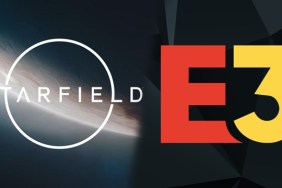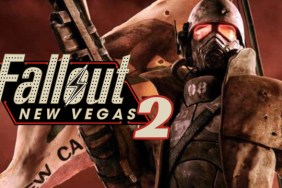Still Riffin’
I knew this day would come. After being labeled the first “civilian” to pass the expert difficulty of Through The Fire And Flames, the most difficult song on Guitar Hero III, I eagerly waited a very, very long time for the long rectangular box to arrive. No one but me would lay claim to it. During sporadic periods of free time, several moments would pass without me noticing my fingers fretting a guitar that was not yet there. Apart from earning five stars on everything but a few songs, I had already jammed out most of what I wanted out of Guitar Hero I, II, and Rock’s The 80’s. If I didn’t get the package soon, I would have needed some Guitar Hero rehab.
[image1]Okay, I’m exaggerating. I’m not Whitney Houston or one of my high school English teachers, who once shook her head in dismay and uttered, “I need chalk like I need heroin.” Still, associations to white powders aside, Guitar Hero has an almost underground subculture that stems further than strumming fanboys. The streets, just beyond the demo booths for Guitar Hero III, were alive with the sounds of rock – and I felt it shredding for a thousand years.
Mercifully, it was well worth the wait. Guitar Hero III kicks out the jams faster, louder, and wickeder than anything you thought was possible on a plastic dueling axe of distortion. Going through career mode, tearing through songs tier by tier, earning cash and unlocking new songs and characters, chuckling silently at a newbie co-op team trying to activate star power in unison, and growling with frustration when you miss the last note in a star-power sequence – yep, this is Guitar Hero all right.
Most everything you would expect from a sequel is accounted for. Environments and character models – especially Casey Lynch – are more lifelike. Loading times are lightning fast. The wireless guitar has a sturdier build and a somewhat snappier strum bar. Hammer-ons and pull-offs, just as in Guitar Hero II, are slightly easier. Career mode is paired with an unspoken, simple but whimsical plot that feels straight out of a kooky version of Metalocalpyse. And rock culture, whether it is the artwork on menu screens, unlockables in the store, or blurbs on the loading screens – “If you haven’t recorded on a 4-track, you’re not a real band.” – is gratefully retained.
More than half of the tracklist are now master tracks, original recordings of artists synonymous with Rock n’ Roll, like The Rolling Stones, Santana, Weezer, and Metallica. For your reference, I am but twenty-two, and so this was my first introduction to many of the bands I missed as a baby. How else was I to learn anything about Bret Michaels, Muse, Iron Maiden, and “oh, so that’s La Grange” before playing this.
[image2]But that’s what makes the Guitar Hero franchise that much more influential for us younger rockers: It’s a TimeLife compilation of rock history – one that I wouldn’t have bothered to order by infomercial – if it wasn’t in the form of an awesome video game.
Unfortunately, “awesome” is limited only to how similar Guitar Hero III is to Guitar Hero II. Every addition and tweak is conservative, likely stemming from the change from developers Harmonix to Neversoft, who don’t want to ruin a good thing. Though none of these oddities break the core of the gameplay, they are littered everywhere for the Guitar Hero veteran to flinch at.
Starting with the weakest addition, boss battles and Battle mode lack both balance and fairness. Here, instead of gaining star power from completing a star-power sequence, you receive powerups that you can use to make your opponent mess up. It’s a concept that sounds great on paper and would have worked if they weren’t randomized and if some weren’t insanely more powerful than others. Getting hit by an Amp Overload makes the capsules coming at you blink on and off, while getting hit by a Lefty Flip reverses the notes, as if your eyes were switched. Being nailed by either of these usually guarantees your demise if you play on Expert, so battles just come down to who randomly gets one of these first.
If that wasn’t bad enough, completing Career mode requires that you defeat Tom Morello, Slash, and the final boss in Battle mode. Not only is it rather skimpy that there’s only three battles spread amongst eight song tiers, but it ruins the concept that Career mode is about playing well on your own terms. If you don’t defeat a boss by the end of the battle, you fail, even if you’re in the green and he’s in the red. But it’s not the difficulty of the final boss – who can attack you first and hit every note that hasn’t been affected by a powerup – that truly irks me, for I sit it both camps: It took me seventy tries to beat the final boss on the Wii and one try on the Xbox 360. It’s that Guitar Hero has always been about skillful guitar play – not about luck and using silly, willy-nilly power-ups. It is not Mario Kart, not Twisted Metal, and most especially, not Amplitude or Frequency. Remember, Harmonix is making that other game now.
[image3]Ripping through online mode and co-op career mode will likely be more stimulating, though what they offer is rather barebones. With a willing friend (you have one, right?), you can blast through standard career mode together, without boss battles and unlocking six tracks exclusive to the mode. Though this more fleshed-out co-op mode is appreciated, you and your friend don’t receive individual stats. Also at this point, there is no in-game online leaderboard for co-op play or an online co-op career mode.
The failings of Battle mode aside, though, the online feature is painless. You’ll occasionally experience the familiar trash talk on Xbox Live and it might take several attempts to establish a connection, but once you find a competitor that doesn’t quit on you, it’s well worth it.
More annoying are some of the graphical "enhancements" that distract you from where you should be paying attention: the notes. A note-streak counter pops in and out whenever you land twenty-five notes in a row, and after every fifty or hundred notes you hit, words flash and wiggle on the screen. So for most Expert players, this is what it will look like: “50 Note Streak!”, mistake, “50 Note streak!”, mistake, “50 Note Streak!”.
[image4]Last but not least, a laundry list of old unpolished peculiarities has yet to be addressed. Audiences are still populated by a horde of clones. Maybe it’s a metaphorical statement that everyone who’s not on stage is just a sea of monkeys that are all the same, but it’s probably just a lack of attention. Unlike previous installments, completing career mode on Expert with five stars on every song doesn’t net you enough cash to unlock everything in the store, forcing you to play through co-op career or the Hard difficulty. High scores in career mode still don’t transfer over to quick play mode. One-star and two-star ratings don’t exist. And boss battle songs such as “The Devil Went Down To Georgia” are not playable or available for practice, though they will likely be available as downloadable content. Let’s hope they’re free, since they should have been here in the first place.
Playing Guitar Hero III is like picking up a brand-new, fashionable (wireless!) guitar. It may have a light but solid body, a sexy and sophisticated shape, more durable strings, more easily adjustable tuners, and hell, it may just sound better, but it doesn’t have the spit and polish – that look of a mature instrument which reminds you of all the years you’ve spent with it, of all the sweat and beer stains. Still, it’s difficult to argue with more of a good thing, and Guitar Hero III, no matter how long the wait, is very, very good.
-
More Guitar Hero
-
Better tracklist, fewer covers
-
General all-around improvements
-
General all-around faults
-
Unbalanced, luck-based boss battles
-
Too many pop-up widgets







